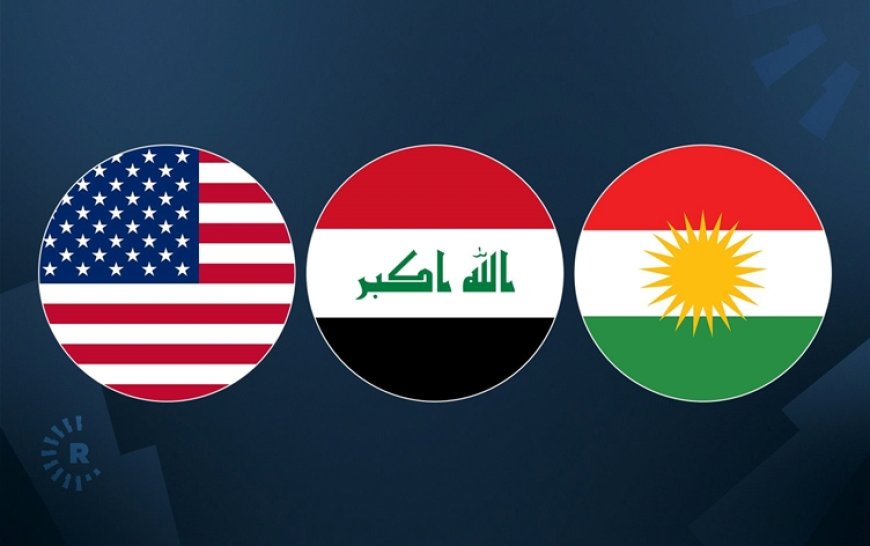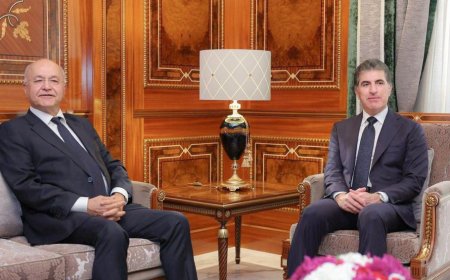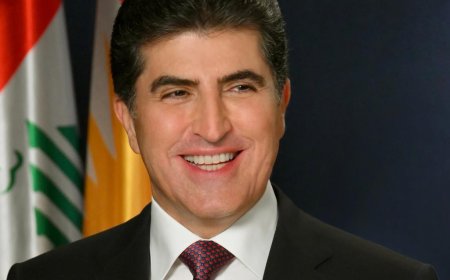US encourages Iraq to end tensions with Kurdistan Region

The United States said on Saturday that the resolution of Erbil-Baghdad tensions over oil exports and finances would signal that the Iraqi government is committed to creating a suitable environment for companies to invest in the country.
“We have consistently encouraged Baghdad and Erbil to resolve their issues regarding salaries and the reopening of the ITP,” a State Department official told Rudaw in response to an email, referring to the Iraq-Turkey Pipeline.
“Addressing these issues quickly would signal that Iraq puts the interests of its people first and is committed to creating an environment in which companies will want to invest. Establishing that business-friendly environment requires respecting contract sanctity and providing necessary security guarantees,” added the official.
Iraq’s Council of Ministers on Thursday approved a new financial agreement with the Kurdistan Regional Government (KRG), paving the way for the resumption of salary payments to the Region’s public employees and the restart of Kurdish oil exports, which have been suspended for more than two years.
RELATED: Iraq approves deal to resolve financial, oil disputes with KRG
The Iraqi government said the agreement stipulates that the KRG is obliged to export all of the oil produced from its fields - estimated at 230,000 barrels per day - through Iraq’s State Oil Marketing Organization (SOMO). The KRG will retain 50,000 barrels per day for local consumption, covering production costs, while the federal Ministry of Oil may provide refined oil products equivalent to 15,000 barrels per day if needed. Erbil will also hand over non-oil revenues. In return, Baghdad will pay the Kurdish government’s share from the federal budget.
The KRG, which approved the deal with the federal government ahead of its announcement by Baghdad, has not confirmed its contents. Kurdish Prime Minister Masrour Barzani said he welcomed their “understanding” and expected Baghdad to resume the disbursement of the salaries of his government’s civil servants who have only been paid for four months this year.
With the announcement of their agreement, drone attacks on locations in the Kurdistan Region have stopped. In the month of July, there were at least 18 drone attacks. Oil fields operated by international companies have been a primary target. The last incident occurred on Thursday when two explosive-laden drones crashed in the outskirts of Erbil, according to the Erbil-based Directorate General of Counter Terrorism (CTD). Another drone attack was repelled on the same day in the Shekhan district of Duhok province, home to oil fields operated by international companies, a security source told Rudaw at the time.
The Kurdistan Regional Government (KRG) has blamed the attacks on Iraq’s Popular Mobilization Forces (PMF), a charge Baghdad has denied.
Aziz Ahmad, deputy chief of staff to Prime Minister Barzani, said in a statement on Wednesday that the Region has lost nearly 200,000 barrels of oil production due to the “spate of drone attacks by criminal militias on the Iraqi government payroll.”
The attacks have been widely condemned, including by the UN, US and UK.
“Demonstrating a commitment to safeguarding and supporting international investment is especially important in the current environment where drone attacks have targeted U.S. and other international companies’ operations in the Iraqi Kurdistan Region without consequence,” the State Department official noted in the email to Rudaw.
(Source:Rudaw)













/file/attachments/orphans/rebecca-hague-mothers_864112.jpg)






































